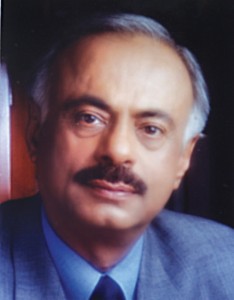 PREM MEHTA, CHAIRMAN, NORTHPOINT CENTRE OF LEARNING, TALKS TO YOUTH INC ABOUT LINKAGES NEEDED BETWEEN INSTITUTES AND THE INDUSTRY, AND CREATING AN INDUSTRY-READY TALENT POOL
PREM MEHTA, CHAIRMAN, NORTHPOINT CENTRE OF LEARNING, TALKS TO YOUTH INC ABOUT LINKAGES NEEDED BETWEEN INSTITUTES AND THE INDUSTRY, AND CREATING AN INDUSTRY-READY TALENT POOL
He’s an industry stalwart who has led Lintas India Pvt Ltd for many years. He’s got forty years of experience under his belt, with names like Unilever and Proctor and Gamble. He has been awarded the ‘Hall of Fame’ by the Advertising Agencies Association of India. He has addressed MBA students at Columbia University, New York; and HEC School, Paris; and has been a regular speaker at industry forums. No wonder, Prem Mehta had the vision to transfer the valuable knowledge he had gathered to those aspiring to make big. And that is what motivated him to conceive The Northpoint Centre of Learning in Lonavala. His take:
“I have had the opportunity to engage with management education in India and abroad, both as a recruiter as the Chairman and Managing Director of Lintas India, and on the governing boards of B-schools; and as a trainer at Columbia. Over the years, I have been conscious of the gap between training and the realities of the business world. According to me, this gap has been growing due to several factors.
The first is the rapid transformation that business has been going through. All the rules have changed due to the pace of activity, the drive for shortterm results and increasing impact of technology. Cultural changes caused by the new demands on human resources have created new challenges as well. New business models have brought about new opportunities as the scene of action has shifted from the developed to emerging markets. Not all old models have proved to be effective in the long run. However, academics do not seem to be investing enough in research to keep pace with the change, and adapt curricula at schools.
Secondly, most trainers at business schools seem to be largely disconnected from the industry. Very few have worked inside organisations and even fewer have the facility to maintain a sustained inter-play with operating companies and real life challenges. Training is thus based on the theory, which in turn, is based on historical experience. This makes most training outdated and irrelevant.
Thirdly, the tremendous increase in opportunities and demand for trained
graduates has led to the proliferation of institutions that claim to train managers, but neither have the right motivation nor the qualified staff to deliver quality. In this context there is an urgent need for centres of learning that address these issues and create a model that produces talent which is more responsive to industry needs.
This new model needs to make training more relevant and create a sustained process that keeps it that way. For this, it is necessary to engage closely with industry to devise curricula, keep it updated and ensure interaction of trainers with industry to it relevant. It is also necessary for the industry to see itself not just as a buyer of talent, but as a partner with institutions to ensure the quality of talent they finally get benefit of. This requires on-going commitment and investment on the part of the industry. For CEOs, people development needs to grow into an essential activity.
Development needs to be more holistic with a focus on developing well-rounded professionals with the right values and perspectives. An ability and willingness to work with others would go a long way in building their value, particularly in an increasingly individualistic world. I can see no discernable difference between the calibre of Indian students and their international counterparts. In fact, Indian students are excited by the opportunities available in the new environment, are ambitious and confident. They are innovative, willing to experiment and open to exploring non-traditional options as entrepreneurs. At the postgraduate level, more seriousness about the learning, and gaining real knowledge, would add to their benefits from training.
If these benefits are to filter down to the lower edges of the pyramid, private institutions with track records of quality need to be given the freedom to develop their own training models, and relieved from governmental control. To create such models, trainers need to be better trained. They need to continuously develop their knowledge through research.”
Volume 1 Issue 8


























